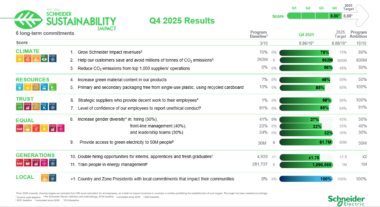The first evidence is emerging of a regime shift underway in the Southern Ocean where Antarctic sea ice is entering a different state of lower coverage, a new study in Nature’s Communications Earth & Environment reveals today.
Lead author Dr Ariaan Purich from Securing Antarctica’s Environmental Future at Monash University said the current record low sea ice in winter has alarmed the Antarctic science community and sparked a race to understand why.
“Our study suggests that since 2016, ocean warming due to global heating has pushed Antarctic sea ice into a new state of diminished coverage that it will struggle to recover from,” Dr Purich said.
“The characteristics of this new state suggest that the underlying processes governing Antarctic sea ice have fundamentally changed. It appears we’re seeing the decline of sea ice long predicted by climate models.”
Sea ice plays a crucial role in regulating the Earth’s climate by reflecting sunlight into space and driving ocean circulation. Sea ice also acts as a physical barrier that protects ice shelves and provides habitat for unique wildlife such as emperor penguins, which rely on sea ice to breed and raise their chicks.
Since the lowest-ever coverage seen in summer earlier this year, Antarctic sea-ice extent has remained exceptionally low. During the winter growth period, large areas of sea ice failed to freeze. For most of winter there was approximately 2.5 million square kilometres of sea ice missing, an area the size of Western Australia. Now, as we approach the winter maximum, there is 1.5 million square kilometres less sea ice than normal.
Co-author Dr Edward Doddridge from the Australian Antarctic Program Partnership at the University of Tasmania said this new study shows that ocean warming is changing the processes that drive sea-ice formation and melt.
“Our results demonstrate that a lot of what we thought we knew about sea ice has changed,” Dr Doddridge said.
“Previously, the ocean’s memory would be wiped every winter – there was no discernible relationship between the summer minimum and the following winter maximum. But, since 2016, this annual reset appears to have broken down.
“This raises the possibility that sea ice has entered a new state in which previously important relationships no longer dominate sea ice evolution.”
Both Dr Purich and Dr Doddridge said that dramatic changes in a seasonal cycle as reliable and critical as Antarctic sea ice underscores the urgency to reduce fossil fuel emissions.
Vision
Imagery is available for download.
Conditions of use: editorial use only – no archive. Please credit photographer (in filename).
Interviews available with:
- Dr Ariaan Purich, Chief Investigator, Securing Antarctica’s Environmental Future, Monash University, E: [email protected]
- Dr Edward Doddridge, Research Associate, Australian Antarctic Program Partnership, University of Tasmania, E: [email protected]
Media Contacts
Monash University
Silvia Dropulich, Manager, Marketing, Media, and Communications
M: 0435 138 743
Australian Antarctic Program Partnership
Mark Horstman, Communication and Impact Officer
M: 0407 701 530


